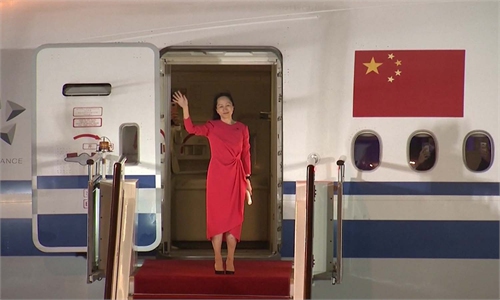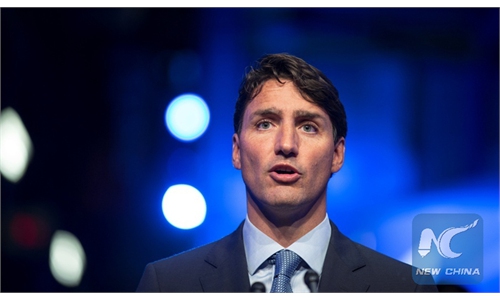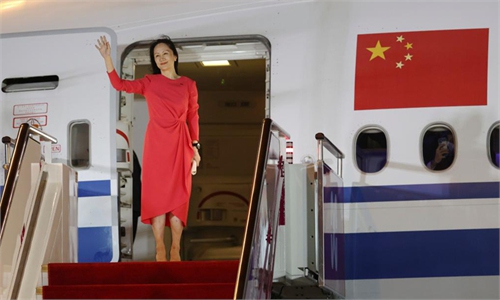Washington’s decision to remove Huawei gear will hit American rural networks hard
Meng Wanzhou’s return is unlikely to ease tech competition
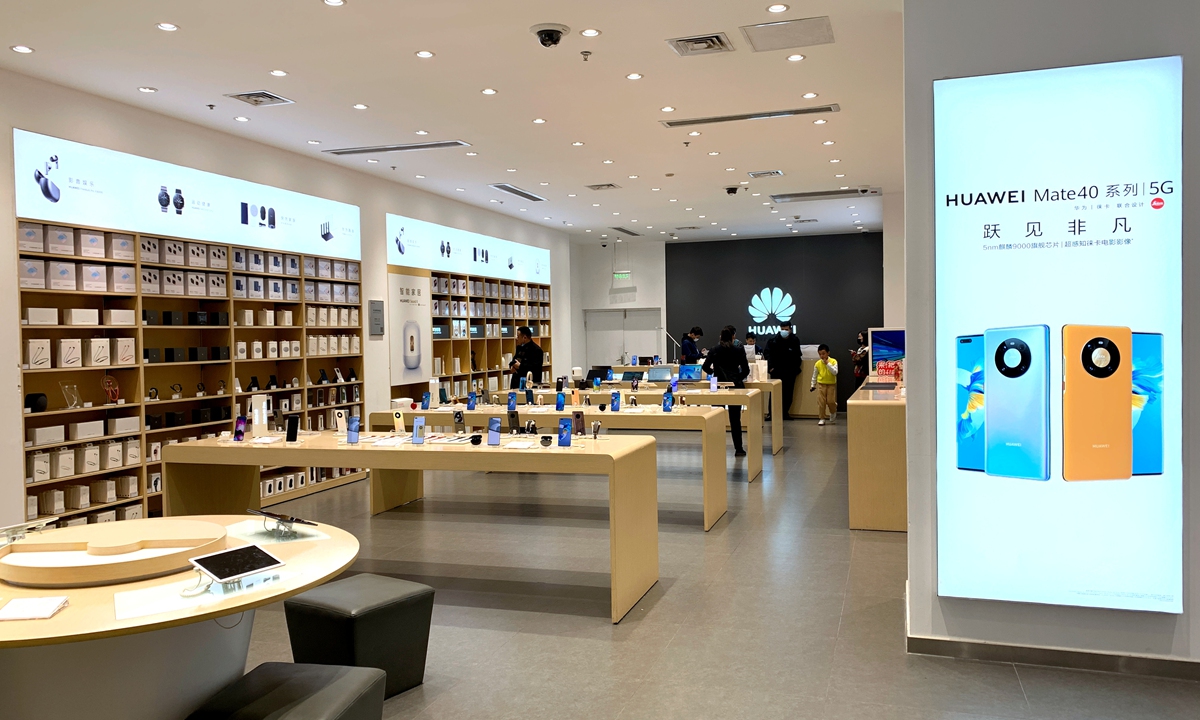
Customers visit a Huawei store in Fuzhou, East China's Fujian Province. Photo: cnsphoto
The US' reported move to replace Huawei equipment in its rural telecom networks only aims to quell the anger of the country's angry Republicans after the release of Meng Wanzhou, as the removal will only curb or even cut off network service for the country's vast rural areas rather than hurting the Chinese tech giant, telecom industry observers said.The US Federal Communications Commission (FCC) said it would open a $1.9 billion program to reimburse mostly rural US telecom carriers for removing network equipment made by Chinese companies including Huawei and ZTE Corp, Reuters reported Monday.
The program, which was finalized in July, will open October 29 for applications through January 14, 2022, said the report.
The removal of Huawei gear aims to comfort the Republicans, and serious side-effect will emerge, which will be a major hit to rural networks and local people's lives in the US, Gao Lingyun, an expert at the Chinese Academy of Social Sciences in Beijing, told the Global Times on Tuesday.
A telecom industry observer told the Global Times on Tuesday that replacement of Huawei equipment will raise costs for local operators and lead to bad service. The removal could also start from "the areas of the Republicans," since it could face barriers in other places.
Moreover, "for a certain period of time, local operators can only work on replacing Huawei equipment - some are even at 3G, and don't do anything else - while others are accelerating to the 5G era," said the observer, who asked to remain anonymous.
The move was strongly opposed by the US' rural telecommunications operators when former US president Donald Trump vowed to ban Huawei's equipment. They warned that a ban could cut off rural Americans' cell service, and higher costs could also mean an end to their businesses.
The report came after US Republican senators slammed the release of Huawei's Meng Wanzhou and allowing her to fly back to China.
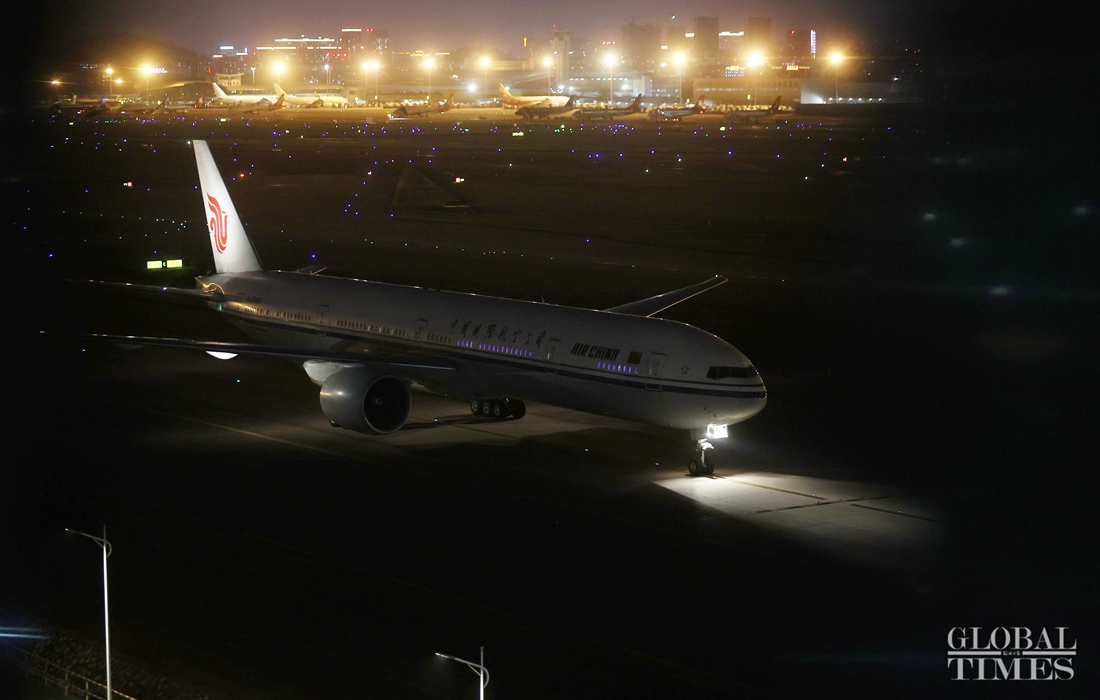
A charted flight carrying Huawei's CFO Meng Wanzhou arrives at Shenzhen Bao'an International Airport on Saturday evening.Photo: Cui Meng/GT
"The release of Meng raises serious questions about President Biden's ability and willingness to confront the threat posed by Huawei," US Senator Marco Rubio said in a text message he sent to Reuters.Rubio also called on the Biden administration to brief Congress urgently on the issue, according to the report.
"Meng's release is no doubt an embodiment of China's national power, but at the same time, we should clearly know that the return will do nothing to ease the confrontation in the high-tech industry between the two countries," Gao said.
As long as China's GDP is getting closer to that of the US, the competition will not change, Gao noted.
China's tech industry, represented by Huawei, has prepared for what could be an intensified crackdown and rivalry. Noting that the US' unilateralism and protectionist mindset would only dampen its long-term dominance in the tech industry, its fall-behind in the 5G sector is a vivid example, Gao said.
Bill Huang, founder and CEO of CloudMinds, a cloud robotics and artificial intelligence (AI) start-up, told the Global Times that despite Meng's return, the case has left "a scar" on the minds of Chinese businessmen who aim to go global, especially to the US market.
CloudMinds was put on the Entity List by the US Commerce Department in May 2020, together with an array of Chinese high-tech firms, mainly in the AI and facial recognition sectors.
CloudMinds' business in the US has basically retreated since the crackdown, the CEO said, but its exploration of other overseas markets including Europe and Southeast Asia has been progressing well.
"In the long run, it will be a big loss for the US instead of Chinese tech firms if the former continues its crackdown. If the US wants to push ahead its AI technology, it cannot decouple from the strong manufacturing capabilities and rich implementation scenarios that only China has," he stressed.
Chinese officials have also stressed several times their position on China-US ties.
The US recently said that it does not want confrontation or a new cold war, and it hopes that bilateral relations will return to normal. However, the key is to take specific action to return the US' China policy to a rational and pragmatic track, Chinese State Councilor and Foreign Minister Wang Yi said Monday. Wang made the remarks in a video meeting with UN Secretary-General António Guterres.
If the US meets its commitments, China is willing to work with the US to jointly improve China-US relations to the satisfaction of the people of both countries, Wang said.
